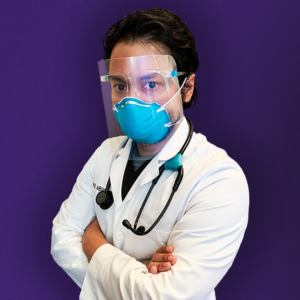The working relationship between a Certified PA and their health care team is an essential part of providing high-quality care to patients. David Abiva, PA-C, expressed that teamwork and “the ability to help fill in the gaps in care” due to the flexible nature of the PA profession when it comes to specialty practice, make Certified PAs a unique part of the health care field.
Certified PAs can work in any specialty, and this inherent flexibility helps them address gaps in patient care. Also, PA education is centered around disease prevention and health management, the two principal areas of primary care. In four states with rural populations (Alaska, North Dakota, Wyoming, and South Dakota), nearly half of Certified PAs are working in primary care specialties to help best serve patients.
Abiva’s favorite part about being a Certified PAs is the “versatility, being able to define the position and advancing the profession.”
For someone interested in becoming a Certified PA, Abiva advises to “know yourself, do your research, and have a plan.” Certified PAs are required to go through extensive training, schooling, certifications and recertifications to practice; knowing where you want to go and having a plan to get there is essential.
To maintain their certification, Certified PAs must periodically take recertification exams and commit to Continuing Medical Education (CME) hours every two years. Abiva explains, “medicine is a fluid situation, so Certified PAs need to keep up to date.”
Certified PAs are integral to the health care team and are uniquely positioned to address gaps in patient care. If this sounds like the profession for you, please visit PAsDoThat.net for more information.

